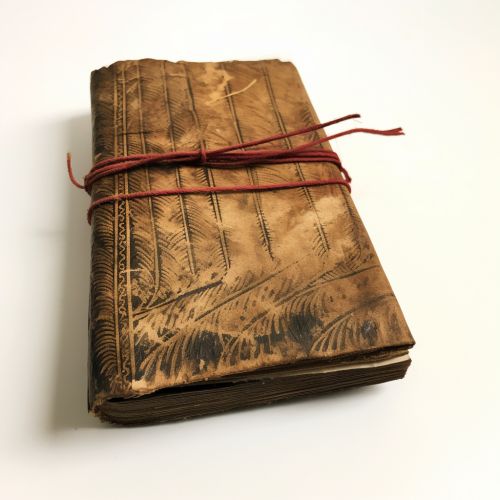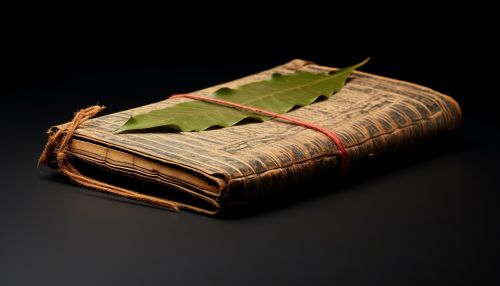Shloka (poetry)
Definition and Origin
A Shloka (Sanskrit: श्लोक) is a category of verse line developed from the Vedic tradition of India. It is the basis of epic verse in India and Southeast Asia. The term is derived from the root 'śru', which means 'hear'. This reflects the oral tradition of the ancient Indian culture, where knowledge was transmitted orally, and the Shloka was one of the primary vehicles for this transmission.
Structure
A Shloka typically consists of a couplet, each line (pada) containing sixteen syllables. The structure of the syllables is flexible within the Shloka, allowing for a variety of rhythms and melodies when it is chanted or sung. The Shloka is also characterized by its use of Sanskrit grammar and vocabulary, which is considered to be the most refined and sophisticated form of the language.


Usage
Shlokas are used in a variety of contexts in Indian culture. They are found in the Vedas, the oldest scriptures of Hinduism, as well as in the Mahabharata and the Ramayana, the two great Indian epics. Shlokas are also used in the Bhagavad Gita, a 700-verse Hindu scripture that is part of the Indian epic Mahabharata. They are also commonly used in Hindu rituals and ceremonies, such as weddings and funerals, and in daily prayers.
Influence
The influence of the Shloka extends beyond India and has been significant in the development of literature in other Asian cultures. It has been used as a model for verse in Buddhist literature, and it has influenced the development of poetry in Southeast Asia, including in countries such as Cambodia, Laos, and Thailand.
